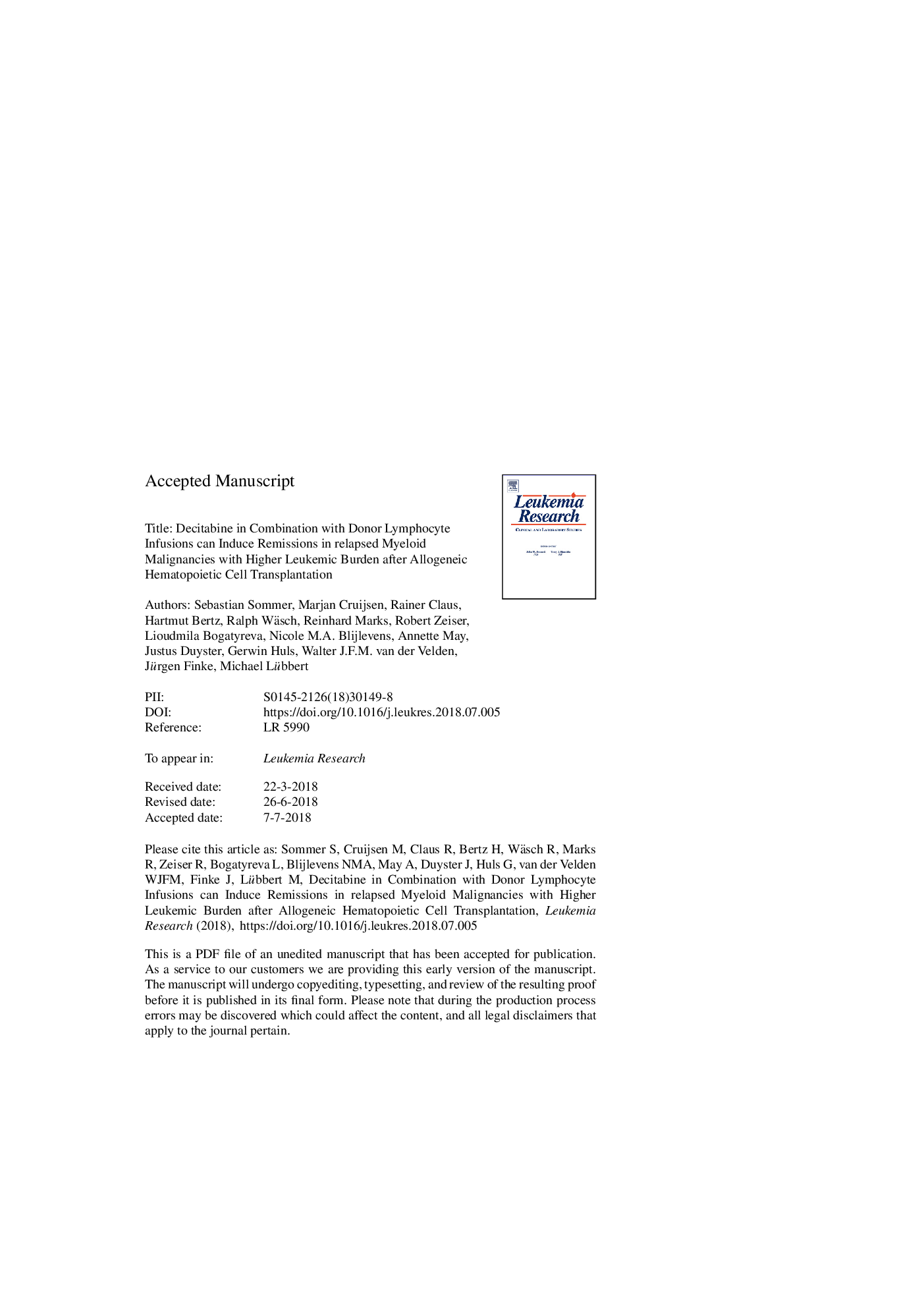| Article ID | Journal | Published Year | Pages | File Type |
|---|---|---|---|---|
| 8453253 | Leukemia Research | 2018 | 20 Pages |
Abstract
The combination of 5-azacytidine (AZA) with donor lymphocyte infusions (DLIs) can induce remissions in patients with relapsed myeloid malignancies after allo-HCT. As decitabine (DAC) is known to be effective also in AML/MDS with leukocytosis, we investigated the combination of DAC with DLIs for relapse after allo-HCT. Between 2006 and 2016, 26 patients (median age 59 years) with AML (nâ¯=â¯18), MDS (nâ¯=â¯6), or MPN (nâ¯=â¯2) and overt hematological relapse after allo-HCT were treated. Median duration from allo-HCT to relapse was 306 days (range, 76-4943). Eighteen patients received DACâ¯+â¯DLIs, 8 DAC-only (median number cycles of DAC: 2, range 1-13, median number of DLIs: 2, range 1-10). The incidence of acute and chronic GvHD in patients receiving DLI was 17% (3/18) and 6% (1/18), respectively. CR/CRi was achieved in 15% (4/26), PR in 4% (1/26), and stable disease in 58% (15/26) of patients. Eight patients received a second allo-HCT. Median overall survival was 4.7 months. Elevated PD-L1 protein expression in bone marrow cells was detected in 4/8 patients with >20% blast infiltration prior to DAC, without a clear association with response. In conclusion, the DACâ¯+â¯DLI regimen proved feasible and effective in relapsed myeloid malignancies after allo-HCT, with efficacy not restricted to patients with low leukemic burden.
Related Topics
Life Sciences
Biochemistry, Genetics and Molecular Biology
Cancer Research
Authors
Sebastian Sommer, Marjan Cruijsen, Rainer Claus, Hartmut Bertz, Ralph Wäsch, Reinhard Marks, Robert Zeiser, Lioudmila Bogatyreva, Nicole M.A. Blijlevens, Annette May, Justus Duyster, Gerwin Huls, Walter J.F.M. van der Velden, Jürgen Finke,
